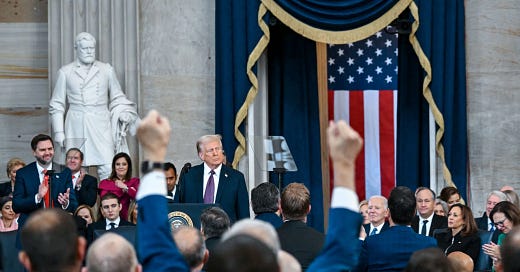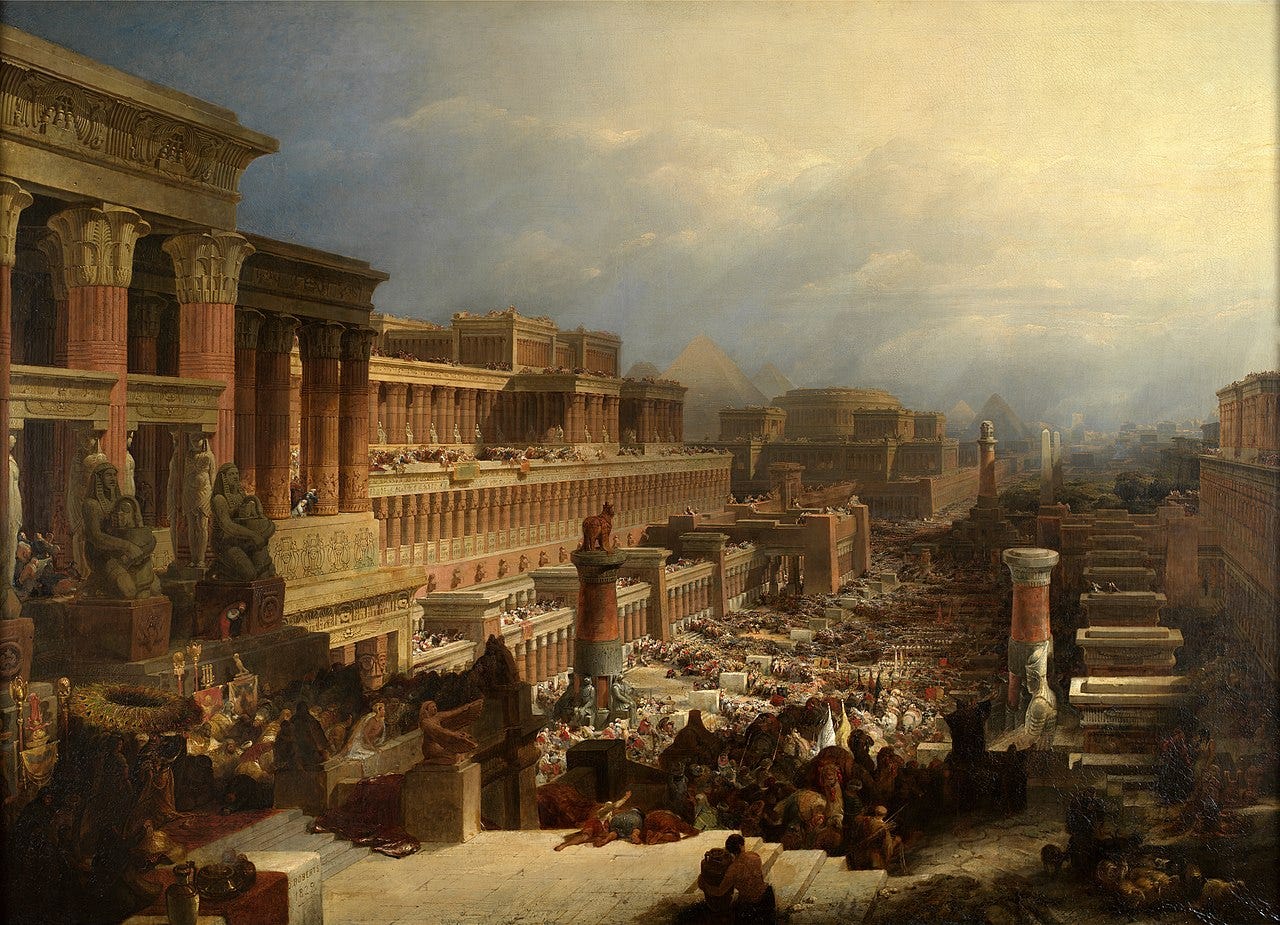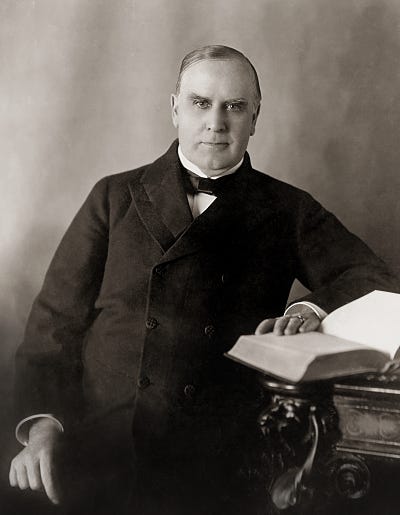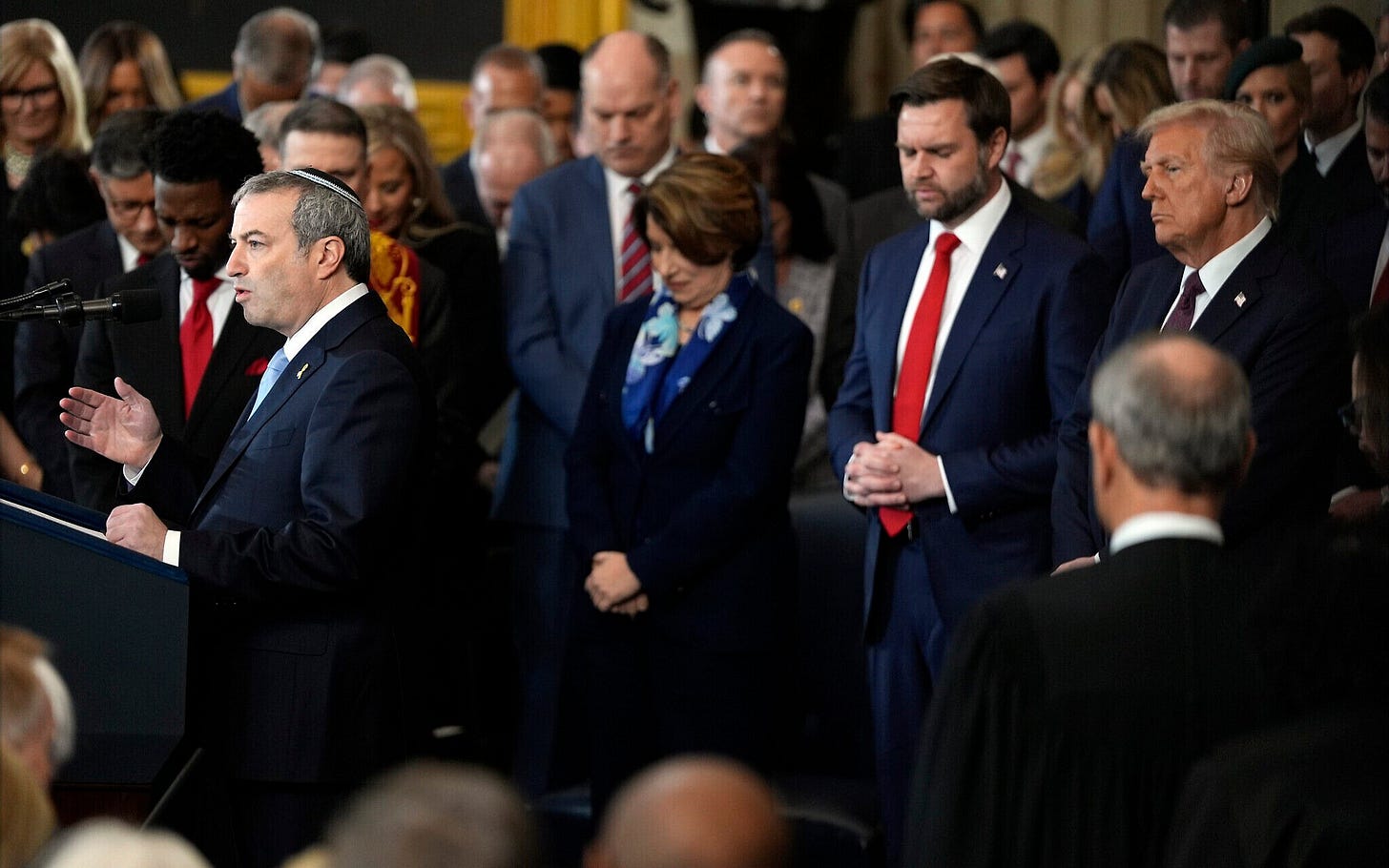Trump's 2025 Inaugural: Freedom, Unity, and Strength
5 key takeaways that signal America's new dawn
By Dr. Naya Lekht
1. Let Freedom Reign
Freedom is fragile.
Mankind doesn’t naturally gravitate towards freedom.
Indeed, if we look at human civilization and in particular, the story of the Israelites who were enslaved in Egypt, choosing freedom was not automatic.
According to traditional Jewish commentary, only twenty percent of the Israelites chose to follow Moses and leave Egypt. From this we gather that however harsh a reality may be, being taken care of, even if that means to be a slave, provides stability.
Freedom is a risk. It is, in many ways, the opposite of stability.
But it is also a mighty concept.
As my mother once reminded me, America is not just a country, it is an idea.
It is a most unique place where the value of freedom is worth going to great lengths to preserve.
To love America, is to love freedom.
President Trump’s inauguration speech, all 4,402 words, were carefully chosen. But that should not come as a surprise. All political speech is word crafting. Although I did not count the number of times the words “free” and “freedom” were used, President Trump unequivocally stated that while his goals may be many, he will “reverse the horrible betrayal and all of these many betrayals that have taken place, and to give the people back their faith, their wealth, their democracy, and indeed, their freedom.”
Yes, to give back to the people their democracy and their freedom for this is what brought and continues to bring immigrants to the land of the free.
As of 2020, the United States has the highest number of legal immigrants in the world. Indeed, according to the United Nations Department of Economic and Social Affairs, World Population Review, and the Pew Research Center, America is the most immigrated-to country in the world.
A lover of freedom, Trump did reminds us “our country was forged and built by the generations of patriots who gave everything they had for our rights and for our freedom.”
In addition to articulating his love of freedom, President Trump, in his evocation of the words “free” and “freedom,” brings back excellence and personal responsibility.
America is a not a nanny state, but a country where the individual can achieve great heights but if chooses to go down a different path, must also take responsibility for his/ her actions.
2. Lover and Peace-Seeker
Speaking of excellence and personal responsibility, Trump’s inaugural address clearly identified a problem: “we have an education system that teaches our children to be ashamed of themselves and… to hate our country despite the love that we so desperately try to provide to them.”
I can hear the chorus of teachers bemoan Trump here: but the goal of education is not to teach our children to love America, but to be thinkers and sophisticated consumers of knowledge.
True.
That is why the converse, teaching them to hate America, must be rooted out.
Notice, President Trump did not state that we must abandon critical thinking and skepticism; we must stop teaching and encouraging our youth to hate America. “All of this will change starting today, and it will change very quickly,” he declared. “We will forge a society that is colorblind and merit-based.”
The aim to end race-based social engineering reflects a desire to move beyond divisive identity politics. Indeed, he expressed gratitude to black and Hispanic communities for their support, signaling his intent to work with them, aspiring to be remembered as a "peacemaker and unifier."
3. Who are Your Heroes?
"Show me your friends, and I'll tell you who you are,” a Russian saying goes.
Swap 'friends' for 'heroes,' and a portrait of a man’s moral portrait unfolds.
Trump highlighted William McKinley, noting, "We will restore the name of a great president, William McKinley, to Mount McKinley."
Who was President William McKinley?
In Trump’s simple words, McKinley, “made our country very rich, through tariffs and through talent.” Certainly, McKinley was a strong proponent of protective tariffs to support American industries and America greatly prospered under him. He also led the U.S. during the Spanish-American War which resulted in a swift victory over Spain.
To understand Trump’s expansionist aspiration, look to McKinley: he oversaw the annexation of Hawaii, which became a U.S. territory and later the 50th state in 1959.
4. No Country for Enemies
Trump's love for America means no tolerance for those who wish it harm.
"Our sovereignty will be reclaimed. Our safety will be restored,” President Trump proclaimed.
On this front, Trump will pursue a two-pronged approach.
To restore our safety, he will root out enemies from within; to reclaim our sovereignty “our armed forces will be free to focus on their sole mission: defeating America’s enemies.”
Promising to invoke the Alien Enemies Act of 1798, on Trump’s watch “the cartels of foreign terrorist organizations” will be dismantled.
Watch out Hamas-toting, ISIS-loving protesters: you will no longer abuse Americans or America.
You will be dealt with in the strongest of terms.
Trump’s plan to dispense with the enemies goes beyond dealing with foreign terrorist organizations. Wisely, he also plans to root out radical ideology: “I will sign an order to stop our warriors from being subjected to radical political theories and social experiments while on duty.”
5. Nothing is Random
The sequence of events in Trump's inauguration wasn't happenstance. The prayer by Yeshiva University's President, Rabbi Dr. Ari Berman, was a deliberate choice, invoking Prophet Jeremiah to bless America.
What does it mean, then, that he chose to invoke the words of Jeremiah, a lamenting prophet who cried for the Jewish people and their beloved Zion?
It is a gesture, a subtle, though clear, signal, that this administration acknowledges Jerusalem's importance to Jews and America's Judeo-Christian foundation.
Finally, who would think that the antisemitism in our schools and on college campuses would be deserving of mention at the inauguration of a U.S. president? But they were mentioned precisely because nothing is random; President Trump and his administration wanted Rabbi Berman to bring up the “unrest” in schools and universities because this administration knows that a threat to Jews is a threat to civility, decency, and morality. In sum—to our civilization.
Trump's inaugural address wasn't just a speech; it was a manifesto for returning America to its principles of freedom, merit, peace, security, and moral integrity. As an immigrant and a fervent lover of America, these takeaways resonate with the ideals that drew my family to this great nation.
Dr. Naya Lekht is a scholar of contemporary antisemitism and a columnist for the Jerusalem Post. She writes widely on the Arab-Israeli conflict, the history of communism, and antisemitism.










Great piece. I’m hopeful for what the next four years will bring.
New Dawn? Sure it is....Sun clouded out for a lot of marginilized people yesterday PP. We are in for a long "Short days of winter " in my opinion.